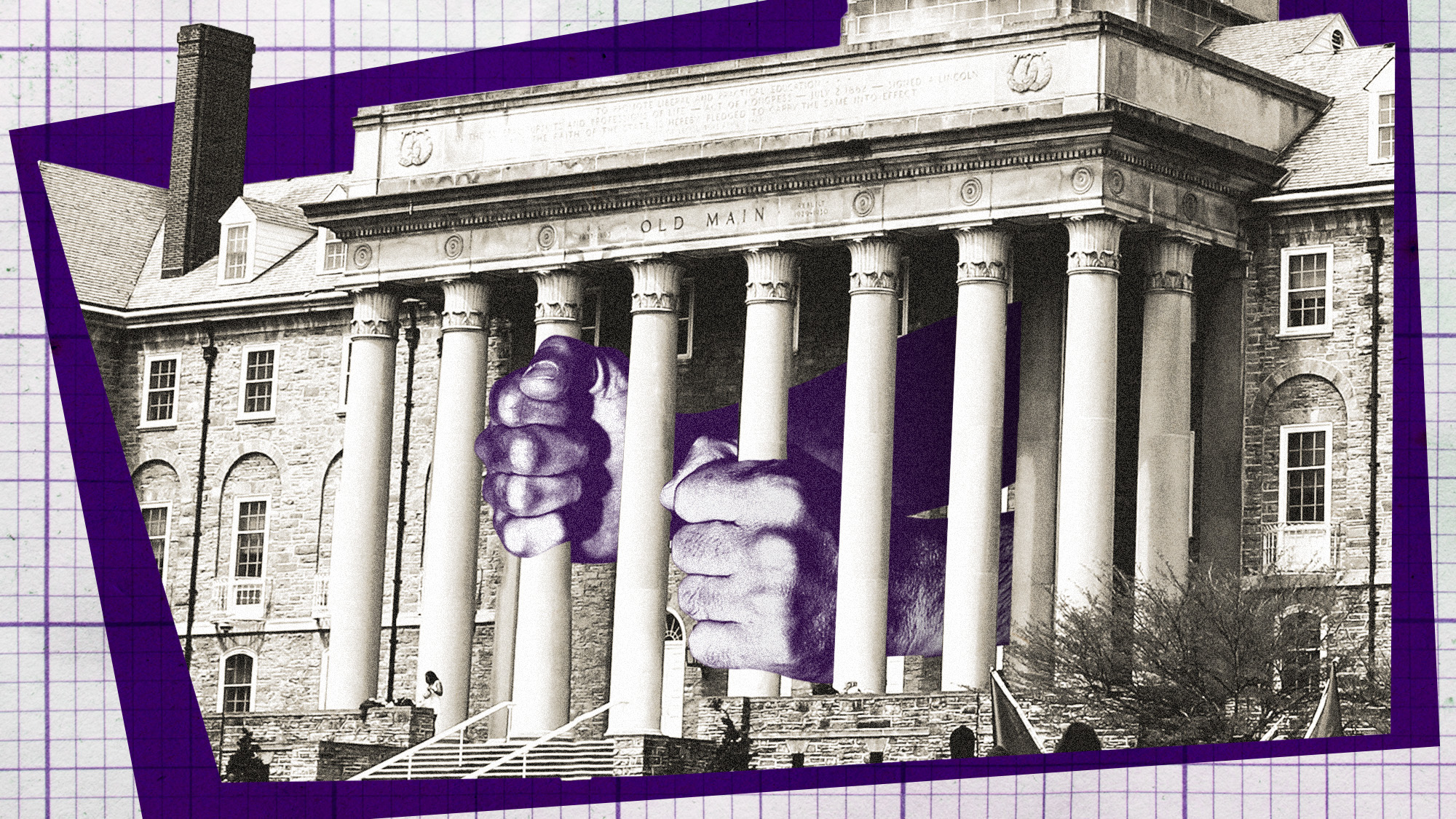Michael Gove vs. The Trojan Horse Affair: what is going on?
Former education secretary attacks ‘useful idiots’ at New York Times over podcast on alleged Islamic extremism in UK schools

A free daily email with the biggest news stories of the day – and the best features from TheWeek.com
You are now subscribed
Your newsletter sign-up was successful
Michael Gove has accused The New York Times of trying to re-write history after the publication portrayed him as an Islamophobe in a hit podcast.
The Trojan Horse Affair proved popular with listeners in countries including Britain, the US, Canada and Australia after debuting in February. The eight-episode series claimed to tell the true story of how an alleged plot by hard-line Islamists to take over state schools in Birmingham prompted a national inquiry.
Then education secretary Gove has now come out against the New York Times (NYT) in the foreword for a new “documentary record” of the case published by the Policy Exchange think-tank. He criticised the “useful idiots” at the paper for claiming that the official response to the row was driven by prejudice against Muslims.
The Week
Escape your echo chamber. Get the facts behind the news, plus analysis from multiple perspectives.

Sign up for The Week's Free Newsletters
From our morning news briefing to a weekly Good News Newsletter, get the best of The Week delivered directly to your inbox.
From our morning news briefing to a weekly Good News Newsletter, get the best of The Week delivered directly to your inbox.
The podcast was “replete with errors and omissions” that fed accusations of Islamophobia, according to Gove, who also accused the NYT of “repeatedly portraying this country as an insular backwater whose inhabitants are drowning in a tide of nostalgia, racism and bad food”.
What did the papers say?
The controversial podcast is named after an anonymous letter sent to Birmingham City Council in 2014 that outlined an alleged plot called Operation Trojan Horse. The mystery author made “a series of claims about an attempt to impose ultra-conservative Islamist views on children in state schools across the city”, said The Telegraph’s education editor Camilla Turner.
The letter was “widely accepted at the time as a hoax”, she wrote, but the government ordered an investigation.
The podcast claimed this response was motivated by prejudice and “described Gove as one of Britain’s most high-profile Islamophobes”, said The Times’s investigations editor Dominic Kennedy. Trojan Horse was portrayed “as a pretext used by an Islamophobic government to justify introducing the Prevent duty, which obliges schools to stop children being drawn into terrorism”.
A free daily email with the biggest news stories of the day – and the best features from TheWeek.com
This version of events had already been questioned before Gove spoke out. The Telegraph’s Turner reported in February that the NYT had “quietly re-recorded parts” of its “one-sided” podcast following complaints.
The creators of the series, Hamza Syed and NYT journalist podcaster Brian Reed, were accused of presenting a “misleading picture” that exonerated Tahir Alam, the alleged ringleader of the schools plot.
Alam is the former chair of the Park View Educational Trust, which ran three Birmingham schools, but is now banned by the government from holding any leadership positions in British education after being found to have undermined “fundamental British values”.
Although “little or no evidence of an organised plot by Islamic extremists was ever discovered”, said The Guardian’s education editor Richard Adams, the government investigations also “resulted in several schools in Birmingham having forced changes in management”, as well as the “new national requirements for schools to prepare pupils for life in modern Britain”.
What next?
“The notion that the events in Birmingham had nothing to do with extremism is as dangerous as it is false, since it conceals an ugly truth that too many prefer not to acknowledge,” wrote Gove and his co-author, former Home Office special adviser Nick Timothy, in the foreword to the Policy Exchange report. “We have a problem in Britain with Islamist ideology and its adherents, who seek to impose their intolerant values on Muslim communities, including children, through non-violent means including the capture of important institutions such as schools.”
The “fear of being branded ‘Islamophobic’ has only made it more difficult to speak up about such extremism”, the duo added.
The report calls on the government to investigate the impact that fears of being labelled Islamophobic or racist have on teachers with concerns about extremism and intolerance in schools.
Gove and Timothy also warned of a “well-organised campaign that seeks to undermine our counterextremism work” including the Prevent programme, which is the subject of an ongoing independent review.
In a dig at the NYT podcast, they said: “Many of the key players in this campaign – who will no doubt repeat their demands for the scrapping of Prevent regardless of how it is fine-tuned – are also involved in undermining the truth about Trojan Horse. The common thread to their campaigning is the allegation of state-driven ‘Islamophobia’.”
-
 ‘Poor time management isn’t just an inconvenience’
‘Poor time management isn’t just an inconvenience’Instant Opinion Opinion, comment and editorials of the day
-
 Bad Bunny’s Super Bowl: A win for unity
Bad Bunny’s Super Bowl: A win for unityFeature The global superstar's halftime show was a celebration for everyone to enjoy
-
 Book reviews: ‘Bonfire of the Murdochs’ and ‘The Typewriter and the Guillotine’
Book reviews: ‘Bonfire of the Murdochs’ and ‘The Typewriter and the Guillotine’Feature New insights into the Murdoch family’s turmoil and a renowned journalist’s time in pre-World War II Paris
-
 The pros and cons of banning cellphones in classrooms
The pros and cons of banning cellphones in classroomsPros and cons The devices could be major distractions
-
 School phone bans: Why they're spreading
School phone bans: Why they're spreadingFeature 17 states are imposing all-day phone bans in schools
-
 Schools: The return of a dreaded fitness test
Schools: The return of a dreaded fitness testFeature Donald Trump is bringing the Presidential Fitness Test back to classrooms nationwide
-
 Send reforms: government's battle over special educational needs
Send reforms: government's battle over special educational needsThe Explainer Current system in 'crisis' but parents fear overhaul will leave many young people behind
-
 Education: Can public schools be religious?
Education: Can public schools be religious?Feature A Supreme Court seems ready to rule in favor of religious charter schools in Oklahoma, which could reshape public education
-
 America's academic brain drain has begun
America's academic brain drain has begunIN THE SPOTLIGHT As the Trump administration targets universities and teachers, educators are eying greener academic pastures elsewhere — and other nations are starting to take notice
-
 Schools' Send crisis: how can it be fixed?
Schools' Send crisis: how can it be fixed?Today's Big Question Government urged to reform support for children with special educational needs and disabilities and save councils from bankruptcy
-
 Is academic freedom in peril?
Is academic freedom in peril?Today's Big Question Faculty punishments are on the rise